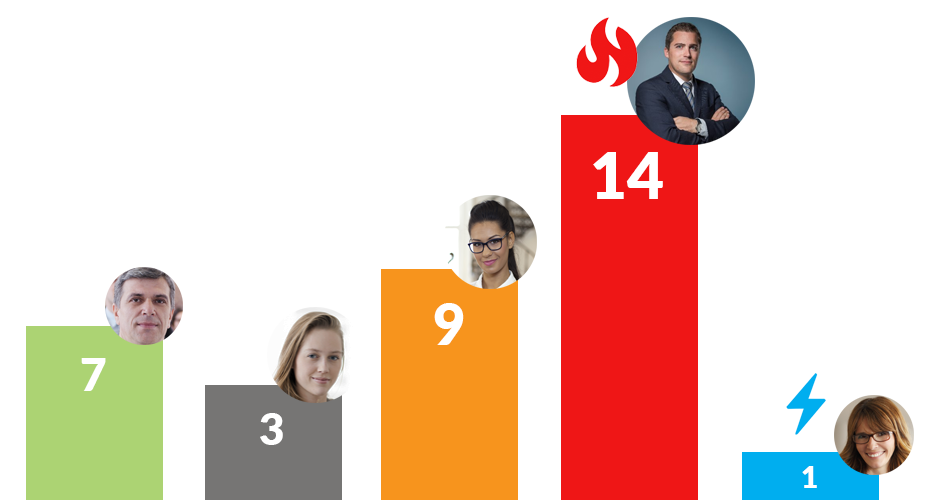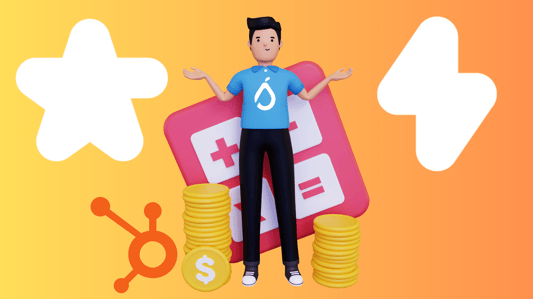How is Predictive Lead Scoring used as a Sales Strategy?

In recent years, businesses have adopted several innovative strategies to improve their sales forecasting and pipeline management capabilities. One of the latest strategies used today is using "Predictive Lead Scoring."
What is Lead Scoring, Exactly?
Lead scoring is a process that helps businesses prioritize and rank potential customers (leads) based on their level of engagement and interest in their product or service. It's a system that assigns a numerical score to each lead based on specific criteria such as demographics, behavior, and actions taken on the company's website or social media pages.
Lead scoring matters because it helps businesses focus their efforts on the most promising leads and determine where to allocate their resources. By identifying and nurturing high-quality leads, businesses can increase their chances of making a sale and growing their customer base. It also helps businesses avoid wasting time and resources on leads that are unlikely to convert.
In addition, lead scoring can help businesses tailor their messaging and approach to each lead based on their interests and needs. This personalized approach can lead to more effective sales and marketing efforts and better relationships with customers.
Overall, lead scoring is an important tool for businesses looking to optimize their sales and marketing efforts and increase their revenue.
What is Predictive Lead Scoring?
Predictive lead scoring is a more advanced form of lead scoring that uses machine learning and predictive analytics to anticipate a lead's likelihood of converting into a customer. Unlike traditional lead scoring, which relies on a set of predetermined rules and criteria to assign a score to each lead, predictive lead scoring uses data and statistical models to make more accurate predictions about a lead's behavior and intentions.
To create a predictive lead scoring model, businesses typically start by gathering and analyzing data from a variety of sources, such as website behavior, social media interactions, and customer relationship management (CRM) data. Machine learning algorithms are then used to identify patterns and correlations within this data and make predictions about which leads are most likely to convert into customers.
How does HubSpot Predict Lead Scores?
HubSpot uses a machine learning algorithm to predict lead scores based on a variety of factors that indicate a lead's level of engagement and interest in a business's products or services.
The algorithm analyzes a lead's behavior and interactions with a business's website and marketing materials, as well as demographic information and other relevant data.
HubSpot's lead scoring algorithm takes into account factors such as:
- Page views and time spent on the website: Leads who spend more time on a website and visit more pages are considered more engaged and interested.
- Content downloads: Leads who download content such as white papers, eBooks, or case studies are considered more interested in a business's products or services.
- Email opens and clicks: Leads who consistently open and engage with emails from a business are considered more interested and engaged.
- Social media interactions: Leads who interact with a business's social media posts are considered more engaged and interested.
- Demographic information: HubSpot also takes into account demographic information such as job title, industry, and company size to help predict a lead's likelihood of converting into a customer.
Once the algorithm has analyzed these factors, it assigns a numerical score to each lead that indicates their level of engagement and interest. HubSpot's lead scoring system can be customized to fit the specific needs and priorities of each business and can be adjusted over time as needed to ensure accuracy and effectiveness.
Looking to Adopt Sales or Marketing Hub?
With HubSpot CRM, businesses can leverage AI-powered sales forecasting, predictive lead scoring, sales coaching and enablement, data-driven decision-making, and collaborative forecasting to optimize their sales performance and achieve their revenue goals.
Pearagon would love to offer its expertise in building a robust, automated CRM system, or how to simply get started on HubSpot for free. 

Pearagon specializes in:
Like what you read? Subscribe!
Pearagon is a Diamond-level HubSpot Solutions Partner. Visit our homepage to see why we do what we do, and how we can help you achieve your CRM dreams.



